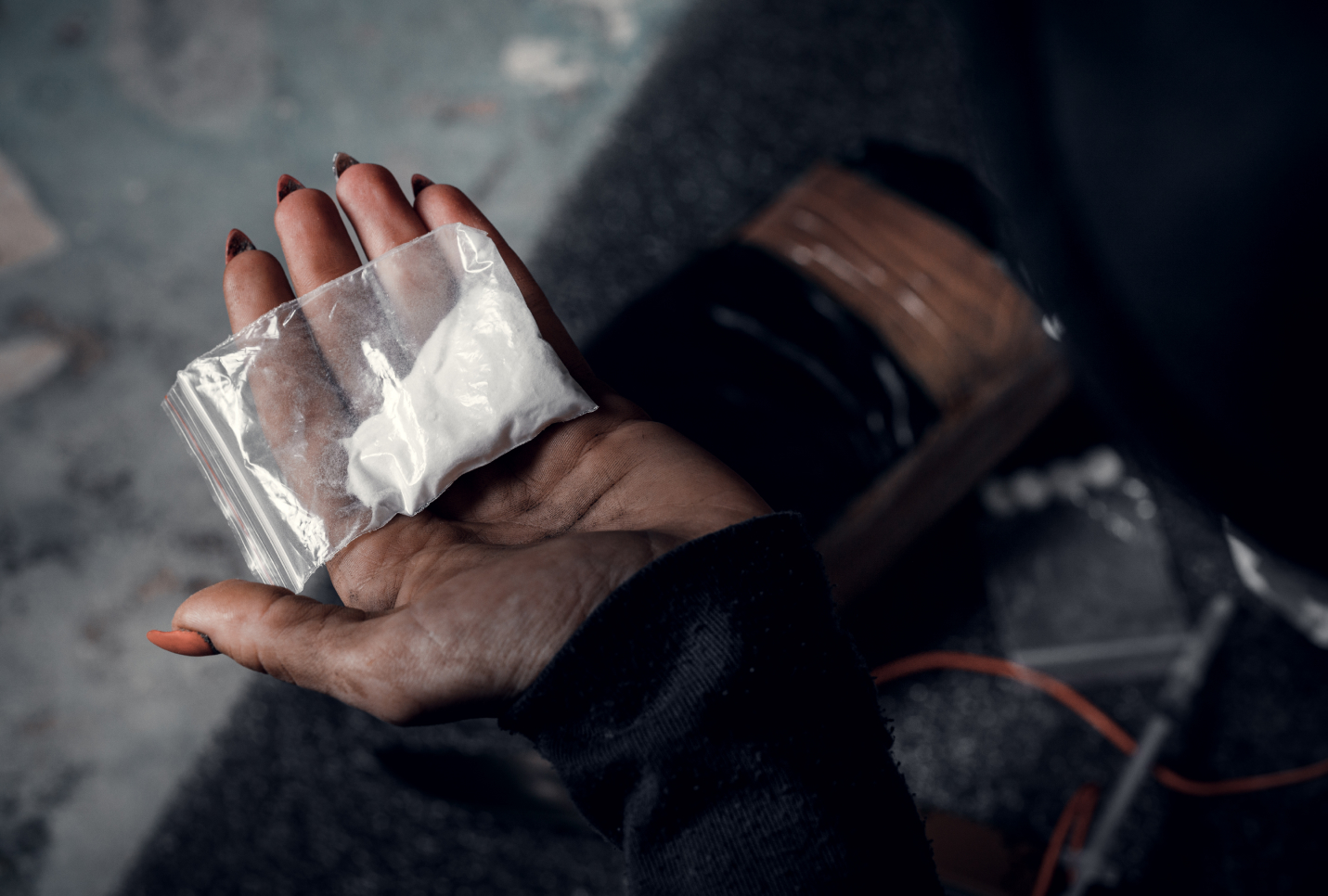Anyone can struggle with addiction, no matter who they are or what the circumstances in their life are. It’s a disease that does not discriminate against anyone and can impact people you might never even consider.
Cocaine is a drug common in the party scene and is often referred to as a drug for “the rich.” That’s because of the high price point and the amount someone might need to buy to maintain their addiction.
Someone trying to quit using cocaine and become sober may find it difficult to do. Cocaine is a highly addictive stimulant drug that impacts the brain and nervous system. Even after you’ve used it just once, your brain can begin to crave the euphoria associated with the drug.
Withdrawal symptoms from prolonged use or misuse of cocaine can be painful and dangerous, so intervention is often encouraged. Learn more about what to expect from cocaine use withdrawals below.
What Is Cocaine?
Cocaine is a highly addictive, Schedule II controlled substance. It is derived from the coca plant, but only recently has the psychoactive component been extracted to obtain what we know as cocaine.
It is usually snorted in powder form but can be injected or rubbed into the gums. The rock-form, known as “crack,” is smoked through a pipe.
There was a time when cocaine was used commonly in medication and elixirs before it became clear it had a high potential for addiction. When there is repeated cocaine use, the person using it can develop a physiological dependency on it.
Side Effects of Cocaine Use
When you use cocaine, there are both short-term and long-term effects that can occur. The short-term effects of cocaine use are:
- Euphoria
- Energy
- Being talkative
- Hypersensitivity
- Lack of appetite
- Lack of sleep
Some of the long-term effects of cocaine use can be:
- Tolerance
- Addiction
- Mood swings
- Increased anxiety and stress
- Convulsions
- Paranoia
- Psychosis
- Loss of sense of smell
- Chronic inflammation of the nasal passage
Cocaine Withdrawal: What Is It?
When someone has been using cocaine for a long period, trying to stop can feel impossible. Your brain and body are so used to having cocaine in their system that you can experience intense withdrawal symptoms if you stop.
You will have built up your tolerance and developed a physiological dependence on cocaine to the point that you will not feel normal unless you have it. Cocaine is highly addictive and doesn’t take much to get you hooked. As you use it more and more, you will need a higher quantity of it to feel good.
Eventually, they will be suffering from substance abuse without proper intervention. When a person goes without cocaine, how their body reacts can be uncomfortable and potentially fatal. For that reason alone, seeking detoxification treatment to help you through withdrawal can ensure your safety.
Causes of Cocaine Withdrawal
Cocaine impacts the brain and alters how it perceives pain and pleasure. Your brain will release higher amounts of certain chemicals into your body when using cocaine, especially for prolonged periods. This causes you to rely more on the drug to feel pleasure and a lack of pain.
When a person stops using cocaine, a crash usually follows. Not only will a person go through mental turmoil during this period, but they will also feel the negative physical side effects.
The urge to use when trying to stop or after a binge can be hard to control. If you are trying to stop using cocaine, withdrawal symptoms are likely to occur. Having a plan and support system is best to help get you through it.
Withdrawal Symptoms
Everyone going through the withdrawal process will experience it differently. How you react to the lack of cocaine in your system depends on how much you have used and for long you have been using. This varies from person to person, which means the reaction does too.
Regardless of your experience, the process can be dangerous and often very uncomfortable and painful. Your body is essentially going into shock as it’s being stripped away of any feelings of pleasure, which only enhances how bad your body feels without it.
The three areas that are most greatly affected during a cocaine withdrawal are your mental health, physical health, and behavioral health. If you’re trying to recognize if someone is going through withdrawal signs, these are the three main areas to pay attention to.
Mental Health
A person using cocaine is likely to show signs of mental distress. They may think they are behaving normally but can come across as highly energetic or irrational.
You may begin to see changes in their mood and emotions, with the inability to figure out what side of them you’re getting on a given day. Cocaine withdrawal can cause a person to experience outbursts and irritability without any great reason.
If a person is undergoing withdrawals from cocaine use, you may notice the following negative mental health symptoms:
- Poor concentration
- Heightened anxiety
- Increased signs of depression
- Paranoia
- Debilitating dysphoria that leads to suicidal ideation
Physical Health
One of the easiest ways to tell if someone is suffering from cocaine withdrawal is to note their physical health. For many, a decline in physical health during withdrawals makes relapsing very common.
The pain and discomfort can become too much, leading to a person seeking out cocaine to make it stop. In general, a person going through cocaine withdrawal will not experience nausea or vomiting, two symptoms often associated with withdrawal from other drugs.
Physical signs that a person is experiencing cocaine withdrawals are:
- Increased appetite
- Slowed movements
- Disruptions in sleep patterns
- Cravings
- Slowed speech
- Lack of hygiene
Behavioral Health
You may begin to notice changes in how a loved one behaves. They may not be acting like themselves and becoming more and more distant. Going through withdrawal is difficult; people must get sick before getting better.
Withdrawals can cause a person to act out and take out their frustration and pain on others. While it’s not always a healthy way to cope, it can say a lot about what a person is going through.
Some of the behavior changes you might notice are:
- Lashing out at loved ones
- Isolating themselves
- Sudden mood swings
- Lying to loved ones
How Long Does Cocaine Withdrawal Last?
The amount of time that you go through withdrawals from cocaine depends on if you are using crack cocaine or powdered cocaine. Crack cocaine usually has a faster onset of withdrawal symptoms just hours after using it.
Acute cocaine withdrawal symptoms may only last a few days, but for others, the symptoms can occur for up to four months.
If you are not actively treating your addiction, you are more likely to relapse after trying to stop. While it’s important to stop using cocaine, you must also treat your mental and physical health. Taking care of yourself and having a support system that can help keep you on track will give you a better chance at recovery.
With the help of treatment, managing your cocaine use and withdrawal is safer and more effective. It lets you focus your energy on getting better and getting through your withdrawals.
Seeking Treatment Can Help
You don’t have to go through cocaine withdrawal on your own. Considering how uncomfortable and painful the process can be, you don’t have to be alone when seeking treatment.
Instead, with Soba Recovery in San Antonio, Texas, you can be cared for 24/7 with inpatient services or find a treatment plan that works around your schedule.
At Soba Recovery, our goal is to develop a treatment plan that helps you get to the bottom of your addiction. We work to treat all of your struggles so that you can work towards improving your mental health and getting back on track.
So much of recovery is the work you put into improving your well-being. The longer you continue to use without treatment, the harder it is to quit.
Reach out to a Soba representative to learn more about our services and how we can help you or a loved one. It’s never too late to ask for help, and we promise to be there every step of the way.
Sources:
What Are The Short-Term Effects Of Cocaine Use? | National Institute on Drug Abuse (NIDA)
What Are The Long-Term Effects Of Cocaine Use? | National Institute on Drug Abuse (NIDA)
The Neurobiology of Cocaine Addiction | NCBI
Cocaine withdrawal | UF Health, University of Florida Health





